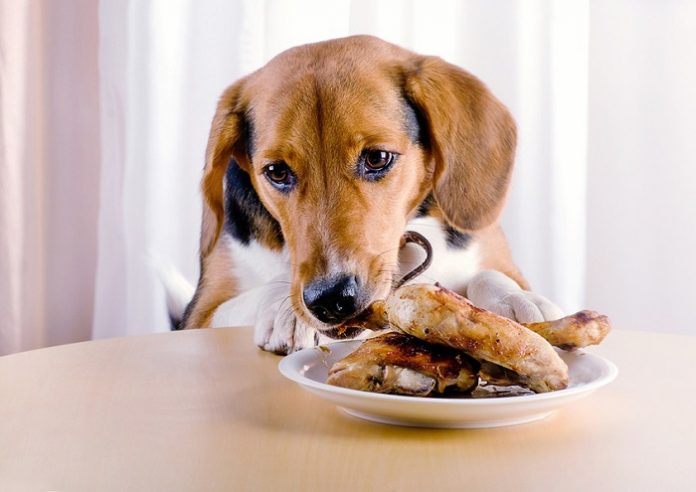Extreme hunger, ie constantly showing a desire for food in dogs, is unfortunately not a behaviour that says that your pet is healthy and happy.
Although there are reasons for increased appetite as a result of changed living conditions or some behavioural disorders, extreme hunger is most often a symptom of quite serious health problems, which require a quick reaction from owners and veterinarians.
Diabetes
Dogs that have diabetes mellitus due to pancreatic disorders usually show signs of increased water and food intake. In type I diabetes, there is an absolute lack of insulin, and in type II there is an inadequate response of the cells to the insulin that is produced. Both conditions prevent muscles and other organs from converting glucose into energy, so there is an excess of blood sugar (hyperglycemia). The first symptoms that can indicate diabetes are increased intake of water and food, and since it is a serious disease, you should seek the help of a veterinarian as soon as possible.
Inflammatory processes in the intestines
The reason why your dog is constantly hungry may be that his body does not absorb all the nutrients. Inflammatory bowel disease (IBD) is characterized by an incredibly large appetite in pets on the one hand and constant weight loss and weight loss on the other. IBD is characteristic of older dogs but can occur in any part of a pet’s life. This disease requires great attention of the owner and the veterinarian in the choice of therapy as well as the food that is provided to the sick dog.
Intestinal tumours
There are several types of tumours that can occur in the gastrointestinal tract of dogs. They mainly attack the stomach and intestines. The most common are adenocarcinomas and leiomyosarcomas. In addition to affecting the absorption of food, they also cause a large increase in the appetite of a sick pet.
Hyperthyroidism
This disease occurs due to increased production of the hormone thyroxine from the thyroid gland. Under normal conditions, these hormones maintain the processes that take place inside the dog’s cells. When there is an excessive production of thyroxine, the processes in the cells and the organism of the dog are drastically accelerated, which leads to an increased metabolism.
The consequence is faster energy consumption and this leads to an increased need for food intake as an energy source. Fortunately, hyperthyroidism is not so common in dogs (it is more common in older cats), but if your dog shows extreme hunger, it would be good for your veterinarian to put this disease on the list of differential diagnosis.
Age
The years of your pet’s life by themselves, as a rule, do not affect the increase in appetite, especially not in an extreme way. It could even be said that with age, their appetite weakens because they no longer need a large amount of energy due to the reduced physical activity that accompanies the years of life.
However, if there are signs of increased appetite, one should be extremely careful because it can be a sign of some of the previously listed reasons and problems. As a rule, old dogs require increased attention of the owner, so follow the rules to take your old pet to a veterinarian for a systematic examination at least twice a year.
Inadequate food
A relatively simple problem with an increased dog’s appetite can also be inadequate food given to him. Of course, the term adequate food is a very broad and complex term. The type and composition of food should be adapted to race, size, age and living conditions. It is certain that the nutritional and quantitative needs of a Maltese who lives in the house and almost does not get out of the hands of the owner and a hunting dog that runs tens of kilometres a day are not the same.
Many owners choose food for their dogs at a price, and not at a quality that implies an appropriate composition that will satisfy the needs of the pet. In circumstances when food is given that is not rich enough in ingredients that provide an adequate level of energy, it is not surprising that the dog shows the need to eat more food. Consult a veterinarian or nutritionist, correct your diet and if there are no medical reasons for extreme hunger, the problem will be solved very quickly.





